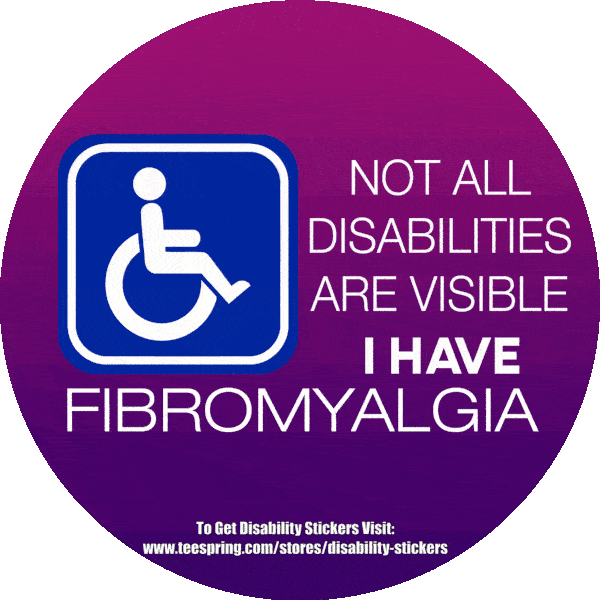Connection between Hypertension, High Blood Pressure and Fibromyalgia
Let’s take a quick look at what blood pressure actually is before getting in depth about its dangers. BP is the pressure of blood in the arteries that’s pumped from the heart. It’s measured with two numbers, systolic and diastolic. Systolic, the top higher number of your reading, is the pressure when the heart contracts or pumps. Diastolic, the lower bottom number of the reading is the pressure in the arteries when the heart is at rest in between beats. Normal levels are measured to be less than 120/80 mmHg. Anything higher than that number on a constant basis puts you at danger of hypertension.
Constant high blood pressure will thicken the arterial walls, make them rigid, and cause arteriosclerosis, or hardening of the arteries.Arteries are usually bendable and elastic, with smooth inner linings so the blood can flow easily. The blood is moved via the arteries all over the body, supplying all the organs with the oxygen and nutrient-rich blood. Constant high pressure in the arteries can wipe out that strength and elasticity of the artery lining and cause tapering, constriction, harm, and aneurysm.
Hypertension is a condition where the pressure inside your circulatory system rises to a hazardous level. As your heart pumps blood through your body, it works a lot like any other pump. It has to maintain a certain level of pressure within the system in order to move the blood around. But when you have hypertension, the force of the blood against the arteries is too high.
The real risk of hypertension is that many people who suffer from it have no idea that they have it. You can have high blood pressure for years, with it doing constant damage to your body, and still show no symptoms. So the best thing you can do is to get regular blood pressure screenings and take the essential steps to treat and prevent hypertension.
Connection between fibromyalgia and hypertension
One thing I can tell you about high blood pressure and fibromyalgia is that some fibromyalgia medications can actually cause high blood pressure in fibromyalgia patients. It is highly likely that, if you are taking several different kinds of medication, your hypertension is being caused by those rather than anything else. Don’t let them just prescribe you another medication, especially if you are already taking several for a existing medical condition. Most people have severe exhaustion, weak muscles, high blood pressure and high blood sugar. Bad temper, worry and depression are common. Women usually have excess hair growth on their faces, necks, chests, abdomens, and thighs. Their menstrual periods may become irregular or stop. Men have decreased fertility with diminished or absent craving for sex.
In a recent study entitled “Fibromyalgia and Nondipper Circadian Blood Pressure Variability” a research team reports that female Fibromyalgia patients are a risk group for “non-dipping blood pressure,” a phenomenon associated with an increased risk of cardiovascular disorders. The symptoms of fibromyalgia suggest Fibromyalgia patients may suffer from perturbations in their autonomic nervous system, leading to instability in processes controlled by the circadian rhythm, such as sleep and heart rate.
Studies recommend that Fibromyalgia patients’ blood pressures be monitored and observed for nondipping patterns, and for physicians to include cardiovascular precautions in their interventions in Fibromyalgia patients.
Monitoring of hypertension
Blood pressure is very easy to monitor. You can buy a device for home or check it weekly at your local pharmacy or drug store. Keep a diary of your readings and if you are every time high at various times of day under various levels of stress, then talk to your doctor about what is causing the hypertension.
Management of Fibromyalgia
Losing weight, even 10 pounds can have a remarkable positive effect on your blood pressure. Taking a good high dose multivitamin/mineral supplement, like the CFS/Fibro Formula will often reduce high blood pressure, so will increasing your magnesium intake. Doctors recommend taking 500-800mg of magnesium a day. Magnesium is a natural muscle relaxant.
Some doctors believe that Fibromyalgia doesn’t cause high blood pressure. Pain can cause high blood pressure, so can Hashimoto’s. They suggest Petadolex for headaches and for High blood pressure, increase magnesium citrate up to 600mg. Make sure to work closely with your doctor if you’re suffering from high blood pressure to make sure you’re getting the best treatment possible and to carefully supervise your blood pressure. That’s the best way to manage hypertension.
Associated risks
High blood pressure puts you not just at cardiovascular risk, but could injure all other vital organs and functions as well, since blood supplies the life to everything. To your brain, it can cause a transient ischemic attack, or a mini stroke, which is a short disturbance of blood supply to the brain. You can also develop a full-blown stroke, dementia, and cognitive impairment as a result of various levels of disrupted blood supply to the brain.
To your kidneys, when they don’t get proper blood supply, they can’t excrete the fluid and waste from the blood properly. Therefore, there is potential for some kind of nephropathy to occur such as kidney scarring, kidney failure, and kidney artery aneurysm. All of these are highly dangerous and potentially lethal. Additionally, hypertension can affect the eyes, bones, sexual function, and sleep, so there are multi-dimensional problems linked with uncontrolled hypertension that require to be addressed at once.
Prevention
Prevention is by far the best way to handle hypertension. Making some basic changes can significantly reduce your risk. Some of the biggest causative factors to hypertension are things associated with lifestyle. Diet plays a major role, for example. High levels of sodium have been shown to increase your risk of high blood pressure. Being overweight is also a serious risk when it comes to hypertension.

